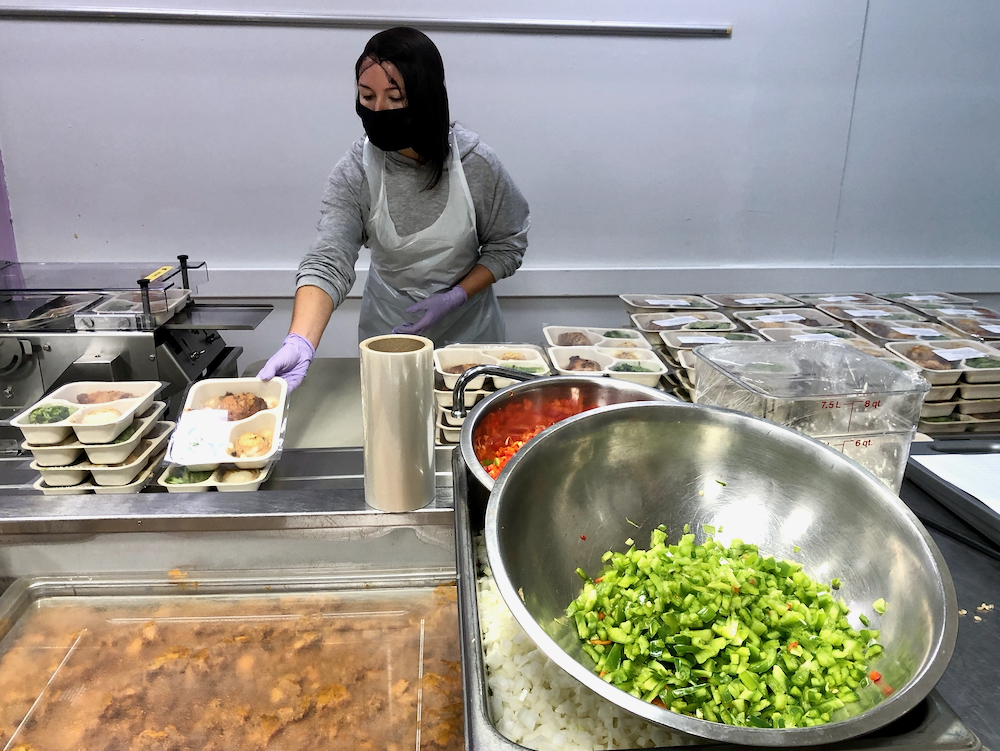
It was a busy afternoon at Goddard Riverside’s strategic partner, the Stanley M. Isaacs Neighborhood Center in Yorkville. In the Dining Room, Senior Center members were finishing up lunch. Kitchen staffers were hard at work making food for grab-and-go meals. In the common area next to the kitchen, a food pantry was underway, and community members were stopping by to pick up bags of vegetables and pantry staples.
In the middle of all this activity, a woman walked in, a small child clutching her hand. “Do you have any extra bread? My son likes to feed the birds,” she asked Khristel Simmons, who oversees all of the center’s food programs. A few minutes later they walked out with a small bag.
At the Isaacs Center, not even the sparrows go hungry.
“We are modeling what food and nutrition should look like in New York City,” says Simmons. “And although we’re a small organization we’ve done an immaculate job of showing that.”
The city government seems to agree. This fall it awarded the center a contract to deliver meals throughout the entire borough of Manhattan—food the city had begun distributing during the pandemic. That’s an impressive vote of confidence for a neighborhood-based organization.
The Isaacs Center has a long and respected history as a Meals on Wheels provider. It holds the lead contract for the Upper East Side and coordinates several partner agencies to deliver meals seven days a week. In recent years it has expanded its food services in other areas as well. Shortly before the pandemic, it opened a community kitchen serving 1600 meals a week. “There was a need and we had a lot of members that expressed food insecurity,” says Simmons.
When the pandemic pushed hunger levels even higher, the center launched Soup’s Up, an innovative program that hires graduates from its Culinary Arts training program to produce meal kits for food-insecure individuals and families.
But addressing hunger isn’t just about making more food available. It’s also about providing the right food for each person. The center has begun cooking meals for its Meals on Wheels clients in-house, rather than buying them from a caterer. That gives them more flexibility to respond to recipients’ food allergies and dietary restrictions.
“Now we’re working with a nutritionist to create a menu for people with chronic illnesses,” Simmons adds.
Among the center’s satisfied customers is local resident Mary Ann Lomicky. She’s been enjoying the food programs for 12 years, and says she’s careful about her nutrition and calories.
“It’s chicken and spinach—it’s good food,” she said, showing the grab-and-go meal she’d just picked up. “They take such good care of us. I’m grateful for it.”